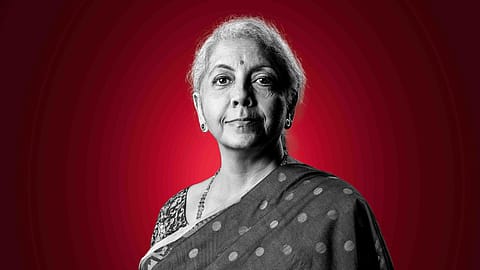GST on 99% of goods slashed from 12% to 5%, says FM Sitharaman
FM said the GST reforms are being implemented ahead of schedule, even before Prime Minister Narendra Modi’s directive to roll them out before Diwali.

Union Finance Minister Nirmala Sitharaman on Sunday announced that Goods and Services Tax (GST) rates on 99% of goods have been reduced from 12% to 5%, underlining that the tax cuts will ease the burden on consumers while boosting demand across sectors.
Addressing the Joint Conclave of Trade and Industries Association – ‘Tax Reforms for Rising Bharat’ in Chennai, FM Sitharaman said, “The benefits of the tax cuts will be felt on all products from the start of the day till people go to bed.”
The minister added that the reforms are being implemented ahead of schedule, even before Prime Minister Narendra Modi’s directive to roll them out before Diwali, taking into account the varied festival calendars across Indian states.
The government overhauled the GST framework on September 3, rationalising indirect taxes from a four-tier structure to two key rates while introducing a 40% rate for luxury and discretionary items, including larger vehicles, casinos, betting, tobacco, sweetened and carbonated beverages, and online gaming. The revised system now features a 5% merit rate, an 18% standard rate, and a 40% demerit rate for luxury and sin goods.
Experts say the GST cuts may trigger a short-term spurt in consumption, but a sustainable increase will depend on higher income levels and job security rather than tax reductions alone.
“If GST cuts are passed on, they can meaningfully lift consumption and credit growth in India, especially in the September–December festive quarter,” said Hiten Mistry, sector lead–consumer (investment banking), Equirus Capital. “The integration of comprehensive GST reductions, coinciding with festive periods and streamlined tax slabs, is more effective than previous incremental adjustments. Therefore, the response is affirmative,” he added, emphasising the execution of the rate cuts.
Economists and institutions also project that the GST reform could boost GDP by 0.3-0.6 percentage points, with SBI estimating a consumption surge worth ₹5.31 lakh crore, or around 1.6% of GDP.